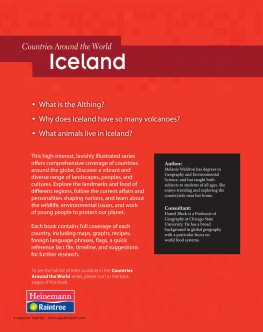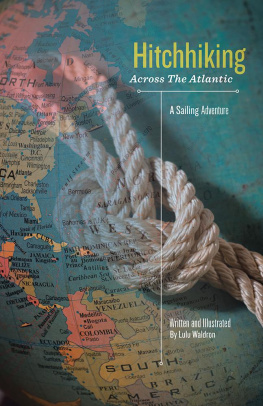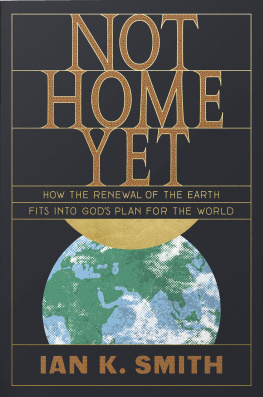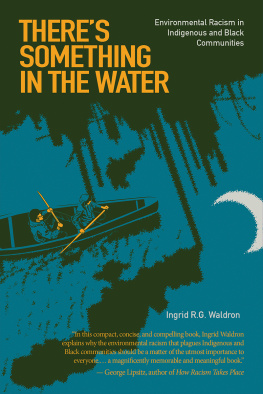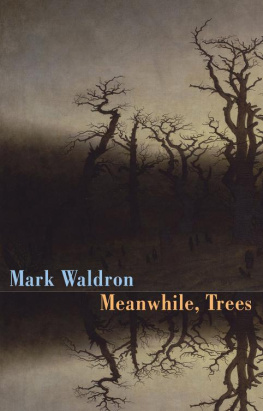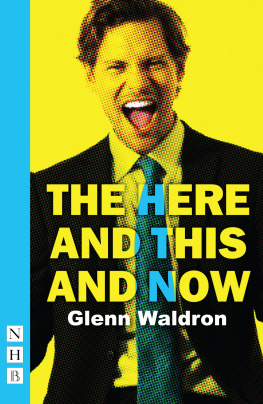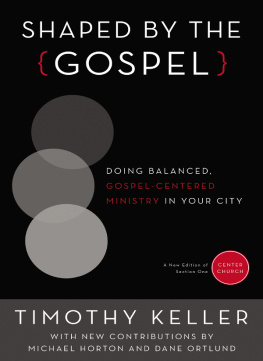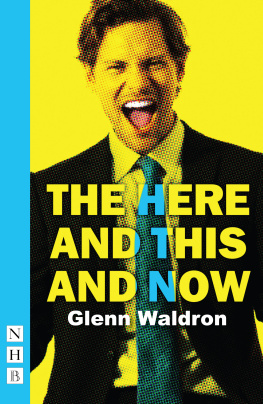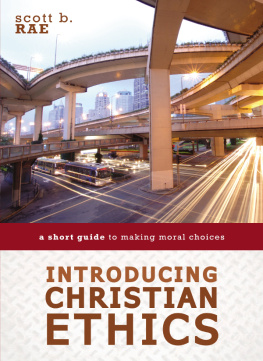Copyright 2009 Waldron Byron Scott. All rights reserved. Except for brief quotations in critical publications or reviews, no part of this book may be reproduced in any manner without prior written permission from the publisher. Write: Permissions, Wipf and Stock Publishers, 199 W. 8th Ave., Suite 3, Eugene, OR 97401.
199 W. 8th Ave., Suite 3
Manufactured in the U.S.A.
To my grandchildren:Justine (Hawk), Gillian (Canary), and Damian;Scott, Daniel, Kendra, and Jonathan;Brianna; Dustin and Travis; Brittney;and to their generation
Even when I am old and gray, do not forsake me, my God,Till I declare your power to the next generation,Your mighty acts to all who are to come
Preface
N o sooner had I finished writing What about the Cross ? than I realized a sequel was required. For in that book I had sketched an alternative model of the atonement without relating it to certain other major blocs of Christian belief; without elaborating on its missionary relevance, if any, in a world of religious pluralism and secular ideologies; and without developing its practical application to our daily lives in sufficient detail.
Further, I had found it impossible to develop a relevant model of the atonement and the gospel apart from the context of contemporary science and the late modern or postmodern worldviews. The whole world lives in what has been called a planetary postmodern movement.
As the reader will see, contemporary science and a theistic perspective on evolution condition my worldview. Postmodern people are comfortable with both of these. The kingdom of God preoccupies me more than the institutional church. I am notably sympathetic to theologies of liberation and social justice. I am distressed by the ambiguous ethics and morals of evangelicals in responsible positions, beginning with myself, and I believe the sensual nature of Homo sapiens is more complex than most of us realize.
For me, contextualization is the defining feature of all missional activity. Thus I share the postmodern concern with the relativity of language and context. It will not surprise the reader that my missionary career has made me thoroughly multicultural. The obvious point at which I diverge from the postmodern perspective is the value of metanarrative. Postmodern folk tend to be suspicious of all metanarrative, including the biblical story. In contrast, I value the biblical metanarrative highly and base this book upon it.
A friend suggested that I should try to write more loosely and supply more detail in order to make my perspective as convincing to others as it is to me. It is true that I tend to write compactly, synthesizing conclusions derived from wide reading but sometimes failing to amplify the explicit reasoning that led to each conclusion. In this book I will try to correct these deficiencies as best I can.
But theres the rub. Thinking about God is an adventure exceeding anything Indiana Jones might imagine. Theology, especially missiology rightly done, is perpetual discovery. Or, as I have titled this book, the renewal of all things.
The primary audiences for this book are students at both the university and seminary levels, and other intellectually engaged laypersons who appreciate the role of science in contemporary society yet are at the same time responsive to issues of faith and spirituality. I do not write argumentatively in order to be refuted or falsified but to stir imagination and provoke fresh thought. I am less interested in expositing evangelical dogma than in exploring the Christian tradition from new angles. In this I shadow Jrgen Moltmann and Walter Brueggemann. But I like to think that in some modest degree I am also following Jesus methodology. As Thomas Talbott puts it:
[Jesuss] whole manner of expressing himself... was intended to awaken the spiritual imagination of his disciples and to leave room for reinterpretation as they matured in the faith; it was not intended to provide final answers to their theological questions (emphasis added).
My background in Christian mission is fairly extensive. I served with The Navigators for twenty-five years, pioneering their outreach to the Middle East and North Africa, leading their mission in Asia and Australasia, and functioning as their international field director for a brief period. For six years (19751980) I served the broader ecumenical arena as general secretary of the World Evangelical Fellowship (now World Evangelical Alliance). I think of myself as an ecumenical evangelical or an evangelical ecumenical. For three years I was president of American Leprosy Missionssuperb preparation for the founding (with my wife Georgia) of Holistic Ministries International in Paterson, New Jersey. Paterson is a quintessential third world city.
The main text of The Renewal of All Things consists of three parts. Part I focuses on the setting or background that necessitates Gods program of renewal. The first chapter introduces the scientific worldview. My objective here is simply to affirm the validity of a scientific worldview within the Judeo-Christian horizon. Chapter 2 explores the early chapters of Genesis, showing how theistic evolution illuminates the stories preserved there. Chapter 3 surveys the remainder of the Old Testament. Here my aim is to forcefully demonstrate Gods faithful commitmenthis unfailing loveto a people he chose as emissaries to reveal his character and salvation to the whole world. This people, Israel, was not notably successful in the enterprise; so chapter 4 describes spiritual developments in the rest of the world, notably those in the so-called Axial Age that began about eight hundred years before the Christ event.
Part 2 is titled Good News. Chapter 5 portrays the Christ event from the bottom up. That event was revolutionary, not least to the immediate followers of Jesus. Chapter 6 investigates how they understood and appropriated it, emphasizing the different interpretations evident within the various New Testament writings themselves. Taking the same contextual approach, chapter 7 demonstrates the variety of ways Christian leaders have interpreted the Christ event within their own times and cultures. This approach validates my personal effort to understand the gospel in the context of our late modern or postmodern culture. Chapter 8 includes descriptions of contemporary thinkers such as RenGirard and notable black, feminist, and womanist scholars. It concludes with a brief presentation of my own model of the atonement, seen in the larger context of Gods purpose to renew all things.
Part 3 is titled Universal Redemption. Chapter 9 lays out the biblical and patristic bases for the hope of universal redemption; chapter 10 does the same with respect to the theological and philosophical grounds. In my judgment, understanding and proclaiming the gospel in terms of universal redemption offers a fresh and potentially more effective avenue for Christian world mission. The final two chapters are specifically missional. Chapter 11 explores the missiological and personal implications of the themes of evolution, contextualization, religious pluralism, and universal salvation as they prepare the way for Gods renewal of all thingsfirst with respect to the worlds religions and then in the broader secular arena. Finally, in chapter 12, I offer my gospelnot as dogma but as a forthright discussion of how I have appropriated the good news during a long and tumultuous life.


